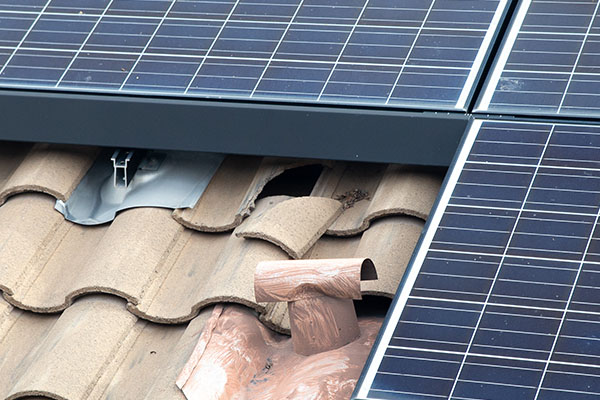Welcome to our guide on navigating roofing insurance intricacies from storm, fire, and other damages. Understanding these factors can help you navigate claims approvals or rejections, and is crucial in safeguarding your home and investments. Of course, all insurers are different, but they tend to follow the same general guidelines.
What Kinds of Damages are Insurable?
Different insurance policies have different types of coverage. In order to know your exact policy covers, you must contact your insurance provider and carefully examine your policy documents. Most policies will, however, follow the following formulas:

Insurances Usually Covers
- Wind
- Hail
- Vandalism
- Falling Objects
- Smoke
- Fire
Insurance Usually Doesn't Cover
- Standard Wear
- Neglect
- Pests
- Earthquakes
- Floods
- Intentional Damage
Roof insurance policies carefully outline covered items based on risk assessment and standard practices. Coverage for roofs typically addresses sudden, unexpected perils such as storms, fire, and vandalism, aligning with events beyond homeowners’ control. Exclusions, like wear and tear or neglect, acknowledge the importance of regular maintenance for preventing predictable damage. Exclusions related to pest infestations recognize that regular home maintenance, including addressing pest issues promptly, is within the homeowner’s responsibility. Intentional damage exclusions are in place to deter fraudulent claims.
Why Might Roof Insurance Companies Reject Some Claims?
Storm damage may not be covered if it can be demonstrated that the roof was built improperly, since that’s not so much the storm’s fault, as the contractors that put the roof on in the first place. Intentional damages of any sort are of course are also rejected, as well as any cases of unreasonable neglect.
How Long Is A Roof Generally Insured For?
A typical timeframe for effective roof insurance coverage is around 20 years. During this period, roof insurance providers generally consider roofs to be in good condition and lower risk. However, it’s crucial to note that factors such as the type of roofing material, climate, and maintenance practices can influence this timeframe. Regular inspections and proactive maintenance can extend the lifespan of a roof, potentially leading to continued insurance coverage beyond the initial 20 years. Homeowners should stay vigilant to ensure their roofs remain in optimal condition for both safety and insurance considerations.
A roof beyond its expected lifespan has essentially lived out its value, rendering it ineligible for insurance claims. Insurance providers typically define a coverage period based on a roof’s estimated lifespan, and any damages occurring after this point may be considered part of the normal wear and tear.
How Important Is It To Keep Good Records?
Maintaining meticulous records and gathering comprehensive information is essential when engaging with an insurance company. In the event of a claim, an insurance company is naturally incentivized to reject your claim so they can avoid paying money. Evidence of a claim must be straightforward and undeniable, which is why it’s so important to make reliable records. An insurance company won’t just take you at your word and shell out thousands of dollars; they need proof. It’s great to take a good amount of time to organize information, especially prior to a claim, to help work out any possible objections.
Can Insurance Demand That I Repair Or Replace A Roof?

While insurance providers give money for repairs, they don’t decide a contractor for you. Most companies leave you to find the best company to fix your roof. Most policies however stipulate that you must return the roof to a reasonable state of affairs to avoid further damages. You can’t just run off with the money and settle for a broken roof, or else the insurance will increase your rates or deny coverage.
If your roof is in a state of disrepair then your insurance provider can recommend a replacement, but cannot force you. They worst a insurance company can do is cut coverage, or increase your rates.
An insurance company will expect (and demand) that you take good care of your roof. If you do this and an unexpected incident happens to your roof, then you can expect the insurer to pay. Documentation can help tremendously in demonstrating that you were not at fault, and that the incident was impossible to prevent.

